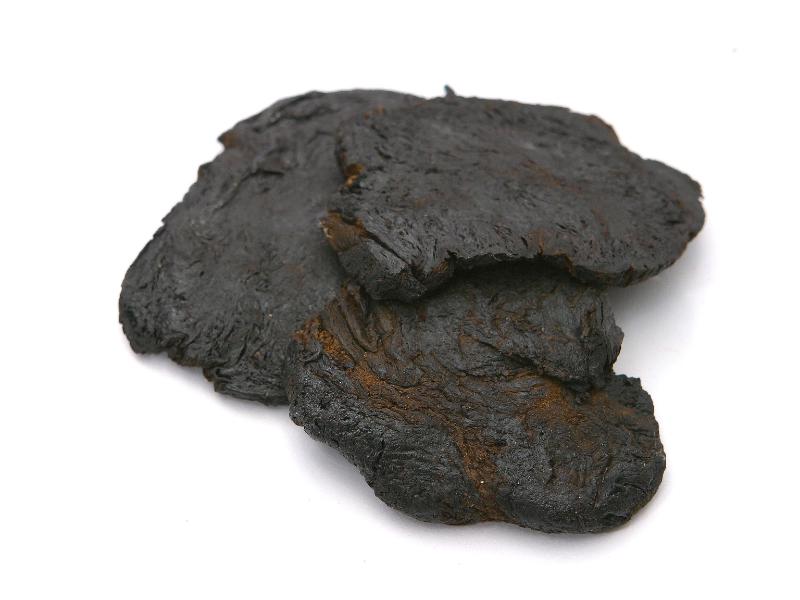Search in medicinals
Rehmanniae Radix Exsiccata seu Recens
Dried/fresh rehmannia [root]
生地黄 〔生地黃〕 shēng dì huáng

Alternate English names: dried/fresh Chinese foxglove [root]
Alternate Chinese names: 大生地 dà shēng dì; 生地 shēng dì; 干地黄 gān shēng dì
Kingdom: Plant
Origin in PRC Pharmacopoeia: Rehmannia glutinosa Libosch. (PRC Pharmacopoeia)
Origin in unofficial sources: Rehmannia glutinosa (Gaertn.) Libosch.*; Rehmannia glutinosa (Gaertn.) Libosch. f. hueichingensis (Chao et Schih) Hsiao
Use: Medicinal
Category: Heat-clearing agents / Heat-clearing blood-cooling agents
Properties: Sweet, bitter; cold.
Channel entry: Heart, liver, and kidney channels.
Actions and indications:
- Clears heat: Heat entering provisioning-blood, presenting with dry mouth and a crimson tongue.
- Cools the blood: Frenetic movement of hot blood, presenting with maculopapular eruption, vomiting of blood (blood ejection), or nosebleed.
- Nourishes yīn and engenders liquid: Damage to liquid with thirst; dispersion-thirst;
intestinal dryness in warm disease.
Dosage and method: Oral: 10–30g in decoctions; double the dose if the fresh root is used.
Warnings: Shēng dì huáng is cold and stagnating, so it is unsuitable for use in spleen vacuity and damp stagnation with abdominal fullness and sloppy stool.
Notes: Fresh shēng dì huáng is sweet, bitter, and very cold in nature. It is weaker for nourishing yīn but is stronger for clearing heat and engendering liquid, as well as for cooling the blood. Fresh rehmannia juice (鲜生地汁 xiān shēng dì zhī), which is extracted by crushing the fresh root, is also used. This has the strongest liquid-engendering action of all forms. Charred shēng dì huáng (called 生地黄炭 shēng dì huáng tàn) may be used for stanching bleeding.
See: Shēng dì huáng (生地黄 Rehmanniae Radix Exsiccata seu Recens, dried/fresh rehmannia [root])
Back to search result Previous Next